Demo Answer: Speech | English Language for GCSE/IGCSE - Class 10 PDF Download
| Table of contents |

|
| Introduction |

|
| Addressing the reading assessment objectives |

|
| Assignment 1 task |

|
| Speech model answer |

|
| Unannotated model answer |

|
Introduction
In this assignment, you'll be tasked with crafting a written piece following specific guidelines, drawing upon the opinions, ideas, and information provided in one or two reading passages.
The subsequent guide illustrates the approach to tackle this task in the form of a speech. Although the task is extracted from a previous exam paper, it's essential to emphasize that using texts or tasks from exam papers is not permissible in your coursework portfolio. Nonetheless, this example serves to highlight the skills necessary to produce a top-quality piece of work.
The guide includes:
- Addressing the reading assessment objectives
- Assignment 1 task
- Speech model answer
- Unannotated model answer
Addressing the reading assessment objectives
You can earn a maximum of 15 marks in this assignment. Your evaluation skills are under scrutiny, focusing on your capacity to assess both the explicit and implicit ideas, opinions, and attitudes conveyed in one or two texts. Your task is to synthesize these elements into a refined and well-developed response.
Let's take a look at how you do this, using the following two texts:
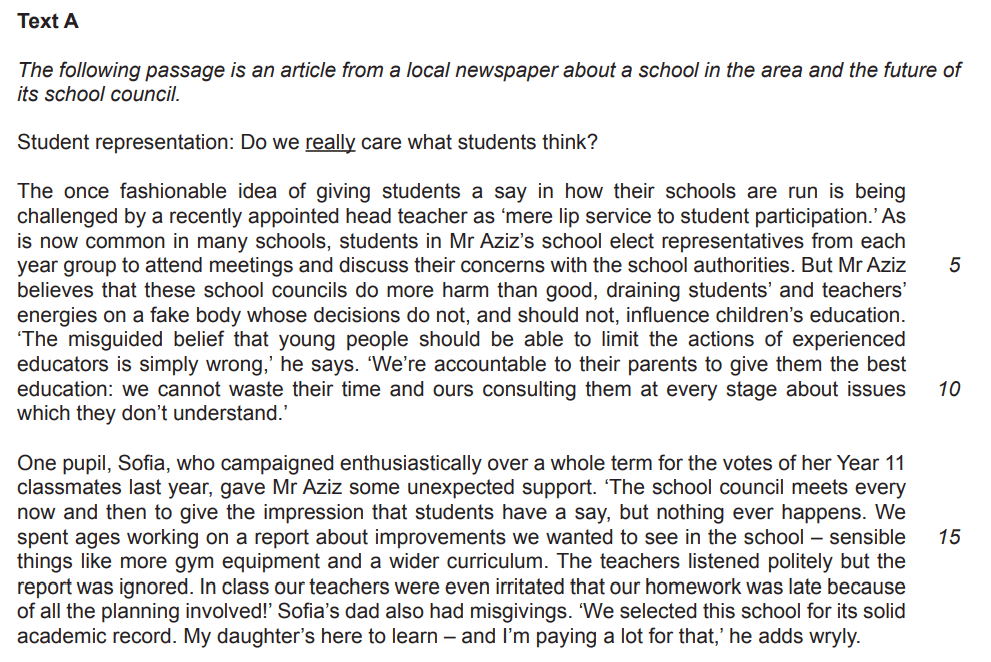

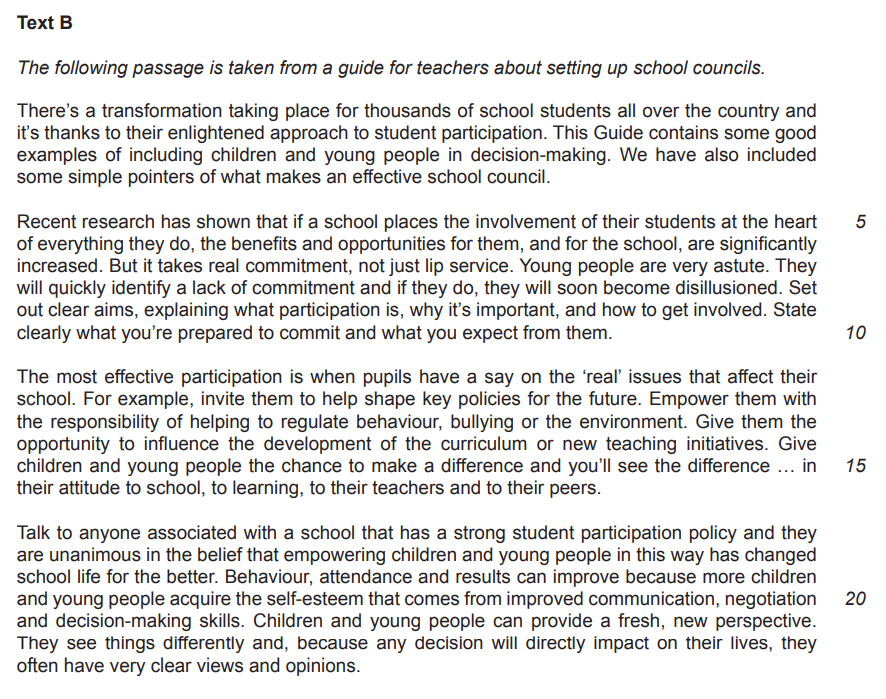
To begin with, you should read the texts and highlight the ideas and opinions that could inform your writing. Your response might use the following ideas from these texts:
Text A
- Student representation trends come and go, potentially lacking lasting impact.
- Administrative burden on schools and educators increases with the involvement of school councils.
- Authenticity is crucial in student representation; it must lead to concrete actions to hold value.
- Teachers bear the responsibility of prioritizing educational outcomes over other considerations.
- Some students lose faith in student representation due to inaction, despite their invested time and energy.
- Decisions within educational institutions are best made by experienced educators for efficient operations and quality learning experiences.
Text B
- An "enlightened" approach and genuine commitment are essential for the effectiveness of school councils.
- Student participation is highly valued and successful when students engage in real, meaningful issues.
- Students have the capacity to tackle challenging problems like behavioral issues or bullying by taking responsibility.
- Participation in school councils can positively influence students' attitudes towards school, leading to improved attendance and academic results.
- Engagement in school councils enables students to acquire vital skills such as negotiation, communication, and decision-making.
- Students bring a fresh perspective to various school matters when involved in council activities.
- Decisions made through student participation can significantly impact them, thereby motivating active involvement.
Assignment 1 task
In response to the above texts, a possible Assignment 1 task wording would be:
“Imagine you are a pupil in a school which does not have a school council.
Write a speech to be given in a school assembly, giving your views on whether or not students should participate in decisions made about the school. Base your speech on what you have read.”
Speech model answer
The following model answer demonstrates a top-mark response to the above task: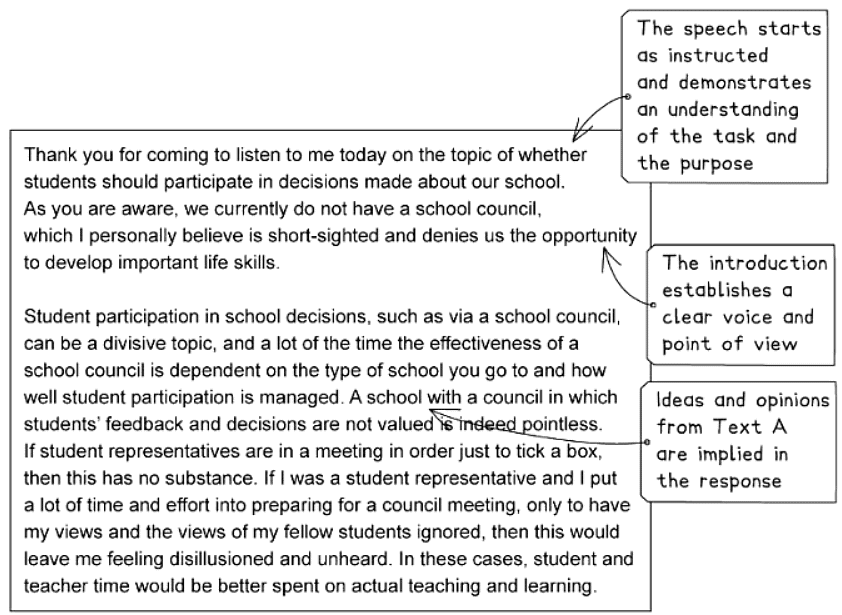
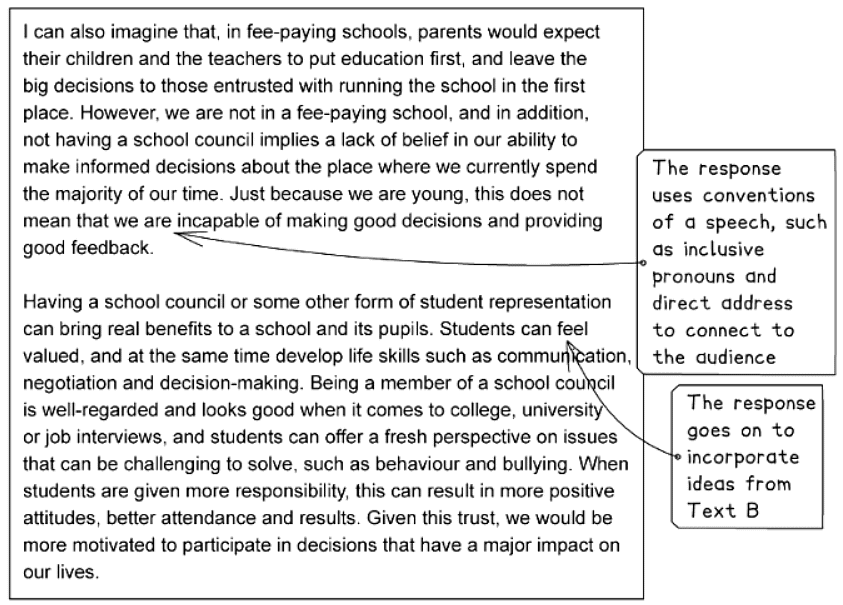
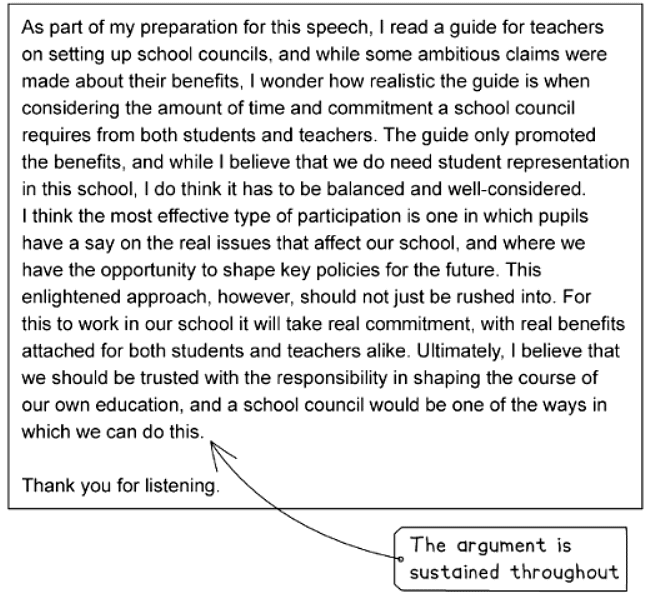
Unannotated model answer
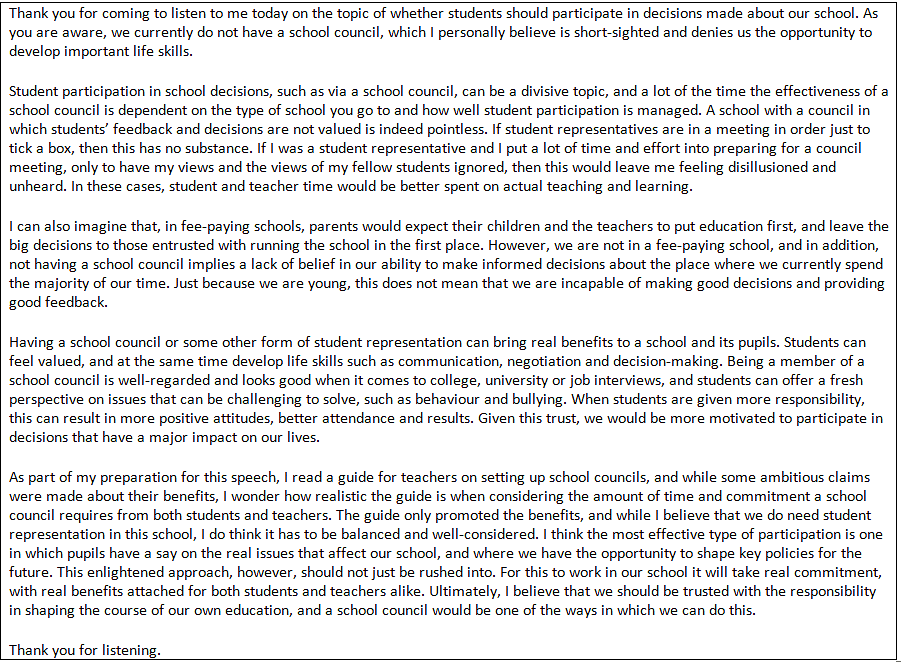
Commentary:
- The speech initiates in accordance with the instructions, showcasing comprehension of the task, its objectives, and target audience.
- The introduction sets forth a distinct voice and standpoint.
- The response subtly incorporates ideas and viewpoints from both texts.
- Utilizing inclusive pronouns and direct address, the response employs conventions typical of a speech to engage with the audience.
- The argument is consistently upheld throughout.
- Accurate spelling, grammar, and punctuation are maintained.
|
16 videos|45 docs
|
FAQs on Demo Answer: Speech - English Language for GCSE/IGCSE - Class 10
| 1. What is the role of school councils in educational institutions? |  |
| 2. How are school council members selected or elected? |  |
| 3. What are some common issues or topics that school councils address or discuss? |  |
| 4. How can students, parents, and teachers get involved with the school council? |  |
| 5. What are the benefits of having a school council in place? |  |















